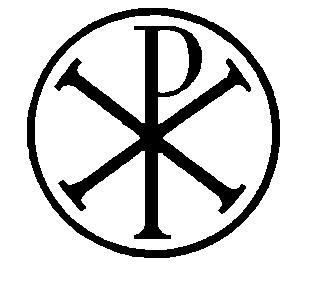A reader raised a concern about jumping on this gaffe:
I am, however, a bit conflicted about the first link. It seems to take an unkind view of an admittedly ignorant pundit. It sounds rather like 'everybody point and laugh at the moron who doesn't know the first thing about a faith that she probably doesn't share'. The author goes on to a laundry list of Christian themed works of art and lumps the experience of those in with both particular knowledge of Christian faith, and by analogue, basic knowledge that everyone has.
It might be my own anecdotal experience, but I feel like Christianity as a whole is being affected by a kind of "creeping entitlement"; a feeling that because we as a group believe in these things, we're entitled to have everyone else believe them too. Therein lies my frustration with the article. The author seems to think he's entitled to a better class of pundit, who knows about Christianity, or better yet, believes the exact same way as him. The stark reality is that there a lot of people out there, and not all of them believe in or even understand Christianity. I somehow doubt that merely expecting people to have the knowledge or experience of Christianity will win many converts.
Would it not be better to take an attitude of love and kindness toward this person who showed ignorance of something we take for granted? Use this instance to call people to live their lives as Christ would have us live, and be luminous examples that the unknowing would wish to understand or emulate.For me, the point of bringing attention to this story was not to mock a woman for a public slip-up. Rather, it was to express surprise that a Pulitzer Prize-winning journalist, a person whom we might expect to be familiar with basic facts about core constituencies in society, apparently thought that it was the belief of Christians that the corpse of Jesus Christ lies in its grave. One might argue, as you do, that we should not expect people who are not Christian to be versed in the basics of Christianity, and that such an expectation would entail a sense of entitlement that is unwarranted. If the point at issue were a minor one, an obscure notion, or if Christianity were a minority faith in this country, or if we were not part of a western culture that had been formed by Christianity, I could agree.
But I think that in a nation that has a supermajority of Christians, with a culture rooted in and built up by the Christian faith, we could reasonably expect that an educated person whose profession it is to know about and comment upon national affairs would be familiar with the most basic tenets of Christianity, especially the most central one: that Jesus is risen from the dead. We can expect this not out of a sense of entitlement, that this is the way things ought to be, but rather in the sense that it is a fact relevant to a large percentage of the population. One need not be a Christian to know the basics of Christianity, any more then one need be a football player to know who's playing in the Super Bowl.
This is a pervasive problem in journalism, as journalists are disproportionately non-religious and for some reason do not feel the need to brush up on the subject before reporting on it. Such practices lead to embarrassing errors sufficient in number to warrant an entire website to covering them. Shouldn't we expect better from our so-called intelligentsia? As David Mills has pointed out,
For some reason journalists can make almost any mistake about the church or religion in general and no one says “boo.” No editor would hire a guy who said the Steelers were going to draft a point guard to help improve their relief pitching, but religion? There it’s “OK, whatever, just say something.”I do not know if Ms. Parker is a professing Christian of any kind, or what sort of personal familiarity she has with the faith. But regardless of whether she's a Benedictine Oblate or a lifelong atheist, I would expect that a person who is not only highly educated, supposedly in the world's diverse ideas, but also living in the milieu of a Christian culture, should be familiar with the basic shape of Christianity. I agree, there is no need to be nasty or personally insulting to her, but certainly, when journalists fail to do their homework, they should be called out on it.
